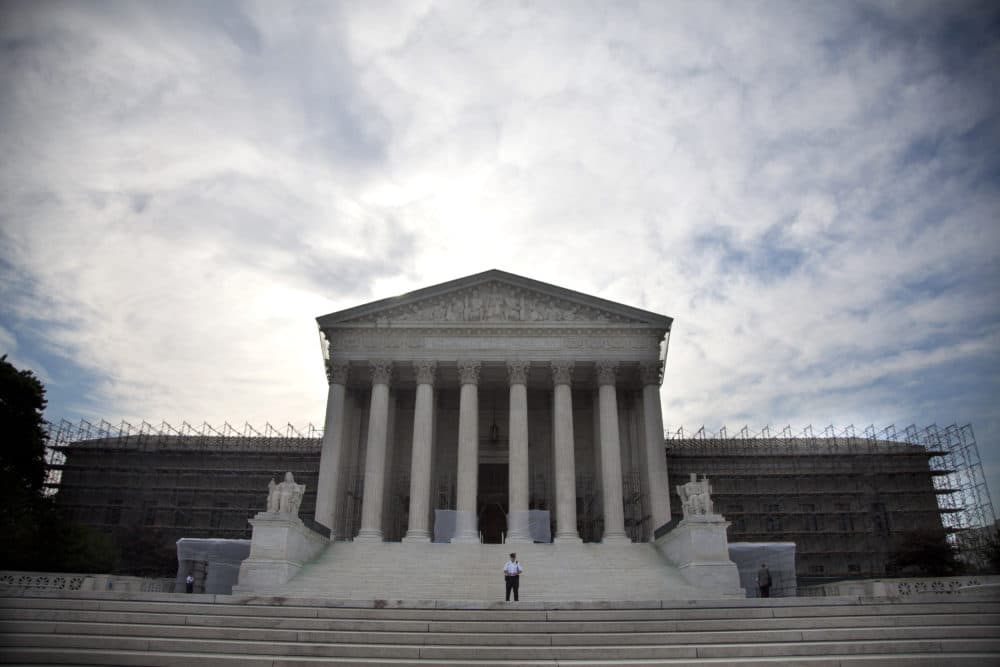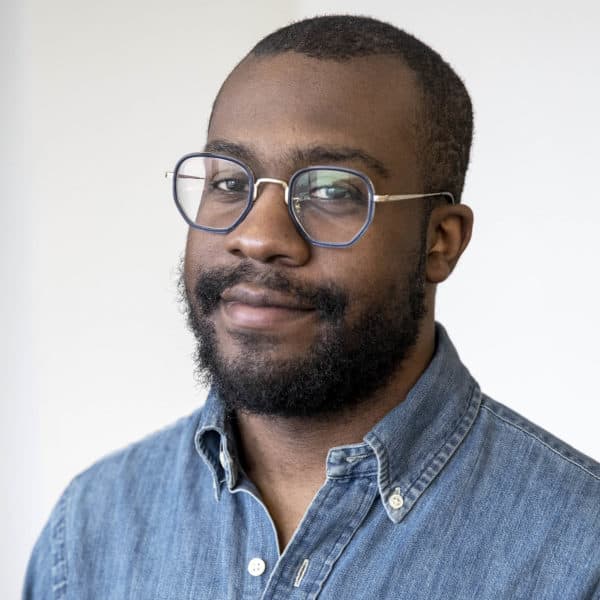Advertisement
Question 2 Wants Mass. Voters To Take A Stand Against Citizens United — If Only A Symbolic One

This year, ballot Question 2 asks Massachusetts residents to consider whether or not corporations have the same constitutional rights as people.
It's been a much-debated topic in and out of courtrooms since as far back as the late 1800s, and more recently, following the Supreme Court's 2010 decision in Citizens United v. Federal Election Commission.
Back in 2011, former Massachusetts governor and then-presidential hopeful Mitt Romney told a crowd at the Iowa State Fair that corporations are people.
"Of course they are," he said, to boos from some members of the crowd. "Everything corporations earn ultimately goes to people."
While Romney, who is now running for U.S. Senate in Utah, received a lot of criticism from opponents of Citizens United for those remarks, Tufts political science professor Jeff Berry said that, in a way, Romney wasn't wrong.
"Because the underlying legal theory of Citizens United is that a corporation has a right to free speech," he said. In other words, the court decided that companies and other groups had a constitutional right to exercise speech, and that campaign donations qualified as speech.
Question 2 asks Massachusetts voters to mandate the creation of a commission that would explore a path to a constitutional amendment that would nullify Citizens United. The ballot measure says the commission would have 15 members. Its goal would be to research how to limit the influence money has in elections, and try to establish that corporations don't have the same rights as people.
Berry said proponents of Question 2 believe America has returned to a gilded age, "an age where those that are wealthy can spend as much as they want in the political system to shape the political system toward their preferences."
Advertisement
That's why Wambui Gatheru is campaigning for Yes on 2. She's with American Promise, a Concord-based nonprofit supporting the ballot initiative.
"Policies have come out that have not really been in the best interest of the majority of Americans," she said, adding that "from health care to violence in our communities," some efforts to address these issues have been "thwarted due to the influence that big corporations have in our political system as opposed to the people."
Gatheru cited the NRA, ConocoPhillips and Caterpillar Inc. as examples of corporations that have used their financial clout as a way to influence political outcomes. She thinks the Supreme Court got the Citizens United ruling wrong.
"At the end of the day, a corporation is not a human. They're a legal entity created for the sole purpose of creating money for profits," she said. "They're not people, so they should not have the same rights in our government as people do."
But Bradley Smith disagrees. He's the founder of the Institute of Free Speech and former FEC chairman.
"We protect corporate rights, because that protects the rights of the individual," he said.
That includes shareholders, managers and employees, who Smith says benefit from their companies "asserting the rights of the people."
Smith doesn't live in Massachusetts, but he's watching the ballot initiative with concern from Ohio. He believes if it passes, it could send a "dangerous" ripple to the rest of the country.
"Then you're saying a labor union has no constitutional right to speak on behalf of its members," Smith said. "You're saying a corporation has no constitutional right to demand a warrant before police search its premises without reason."
"It's not clear if it's ever going to be a reality -- that it's ever going to be a constitutional amendment."
Jeff Berry, Tufts political science professor
But even if Question 2 does pass, there's no guarantee it'll have much of an effect beyond Massachusetts.
Berry, the Tufts professor, said it's more of a symbolic gesture toward its ultimate goal of a constitutional amendment. No other states have to get on board, and the Supreme Court isn't obligated to acknowledge it. To get a constitutional amendment ratified, at least 38 states would need their legislatures or state ratifying conventions to vote in the measure's favor.
"It's not clear if it's ever going to be a reality — that it's ever going to be a constitutional amendment," Berry said.
But in the short-term, he said, Question 2 revives a conversation about the role of money in politics and money as speech.
This segment aired on October 17, 2018.
